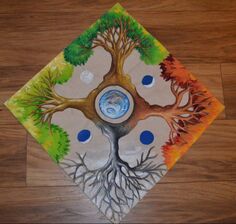|
Recently, a friend of mine contacted me about her concerns caring for her elderly parent. She herself has serious health issues. Her children will only help if there's an emergency and when they do come, they're critical, wondering why the Christmas decorations are still up, they have little sympathy for her fatigue or inability to cope with anything beyond the immediate health issues her parent faces, and they don't want their mother to cry or talk about her worries. She feels alone. She's tried to get an assessment from Home and Community Care, and until she does, no assistance can come from other sources she knows are available to her, including the Department of Veterans Affairs who would pay for all or most of what she needs. It's been 4 months now, and Home Care is still too booked up to get the assessment done.
The irony is that if her health were to fail, if she were to be hospitalized or even die, care for her father would suddenly be available. But as long as she's willing to struggle on, their case drops farther down on the priority list. I know people who work in healthcare, and I know this is nobody's fault. Money is tight and getting tighter, there are restrictions on services, and despite good intentions, bureaucracy comes to feed off itself rather than focussing on the services it's intended to provide. This simply does not work to anyone's advantage. Our modern Western medical system is not designed to keep people healthy so they don't need care, it's designed to intervene in a crisis. Preventing a crisis is not a priority, even though it should be. Some even say that it's not "health-care," it's "sick-care." Until you're sick, the medical system has nothing to say to you. No help is available until you're demonstrably unwell. Here is part of a message I started to her, with some other thoughts added for clarification. I've edited details to protect her privacy. The fact is, her situation is so common it hardly bears thinking about; when it comes to the elderly, family caregivers provide more than 50% of care today. If a family member cannot provide care, that affects all of us. Yet most people don't even know where to start to get help or even advice. Everyone is sure that keeping people at home is always the best solution, that their problems are unique to them, that their questions will be heard as a lack of trying, an admission of weakness. That's far from the case but the word needs to spread so that all of us can get the care we all need. I started to say to my friend: Your concern here is that your health is uncertain, there's no backup plan, and despite repeated attempts to get him assessed for assistance you know is available, delays in the system have kept you waiting for more than 4 months now. Without that assessment, you're not able to access the help YOU need to carry on providing care for him in the home. Your healthcare needs mean that at any moment, he could be left with NO care. It's so hard for us to know how serious our own situation is. In your case, if something happens to you, if you were to be hospitalized even briefly, Home and Community Care would be forced to step in, or your father would be transferred to the first available bed in a hospital or care facility. Given your health issues, this scenario is not unlikely. In fact, it's very common for the caregiver to die first or be hospitalized, because caregiving is a serious health risk even for a healthy person. This is why I'm suggesting you talk to your own doctor. The system is delaying because of their internal issues, but if you do not get the assistance you know is available, you will be forced to use the system. Home Care is the bottleneck here, preventing you from doing the exact thing Home Care itself will benefit from, continue to care for your family member in their own home, with adequate support from various agencies. I think part of why I was able to access help is that I went into the situation knowing it was not possible for me to handle things alone. There was never a point where I could have been at home alone struggling to care for my mother. I was willing to take on the challenge, but my mother was intermittently very hostile towards me. Her own doctor said it was "medically unsafe" for us to live together, which meant I HAD to find alternatives. Caring for her myself was not an option. And when a family caregiver is not present in the home, suddenly doors open and help is available. But as long as you're willing to be there, then your case is not high on the list because of budget cutbacks and other pressures on the healthcare system. It's a terrible dilemma. For us laypeople with no professional medical training, who only know our own problems, whatever we're going through seems unique and insurmountable. For someone trained who cares for the elderly every day, it's easy to know what's normal, and what is not normal or acceptable and could be helped with drugs or other medical interventions. Having professional support can be crucial, but it can be SO hard to get access to! Many of us are sure we can care for our elderly loved one better than a professional, but that's often not the case. Someone with training can do the same things, sometimes in a less caring or loving way, but sometimes more efficiently and in a way that is less intrusive because there's none of the embarrassment or fear we might bring to things. I was lucky. I never had to change a diaper for either of my parents, or do any of those tasks that force us to cross a line within ourselves. My mother was hospitalized for 3 weeks in her final illness, she did lose control of her functions, but nurses and nursing aides handled the messy jobs for me, which spared both me and my mother. And this was always done in a caring but practical, no-nonsense way, because these people are trained to do this and they do it every day. After my father died and I had Mom evaluated, I moved my mother to a group home. Within days, they'd identified issues that made her care very difficult even for them. The same issues had led to Mom's intermittent hostility toward me, and caused much stress and heartbreak for my father, but we coped on our own, figuring this was "just how Mom is." A worker from the group home got on the phone to me, and said, "this is bullshit. She's suffering, the people around her are suffering, she needs drugs. This can't go on." The group home arranged for a specialist to see Mom. The medication he prescribed made a huge difference, like night and day. With a small regular dose of the right drug, my mother became her true self, "a real sweetheart," a pleasure to be with, as several professionals said about her. I've often wondered how different things might have been if my father had asked for help sooner, if we could have gotten an evaluation and medication for Mom sooner. My father's life might have been longer and happier, but at least, the worst of what he faced could have been made more tolerable. My father and I only discussed our concerns about Mom in undertones and whispers when she was out of the room, and only rarely, maybe 5 or 6 quick comments in two years. We had a real conversation about it only when he was hospitalized during the last month of his life, and by then, it was too late. As often happens with caregivers, his health declined and he died before she did. I have no doubt that the strain of caring for her hastened his demise. Two months later, there I stood in the kitchen of the group home, having a calm, practical discussion about my mother's situation with strangers. They were compassionate, concerned and caring, and professional. At one point, the owner of the group home asked, "was your father covering for your mother?" I said, "oh yes. Big-time." He shook his head and said, "that always happens. They think they're doing them a favour, but it's the worst thing they can do." And I realized that my private tragedy had been summed up in one sentence by someone who'd never known my father. It's a commonplace occurrence, it happens to families every day. And there are people who can help, who are trained to handle this. The hard part is finding the care and accessing the services. But even harder is recognizing that most of us have no training in caring for the elderly and very sick, and that sometimes we are not the best people to do this. Or we need more help to do it than we know how to accept. Another friend told me the story of how she did a lot of work calling doctors and following leads to get her daughter's tonsils taken out, and the Ear Nose and Throat specialist gave her a high-five for taking on the system. During the time I was caring for my mother, my own doctor said "kudos to you for getting her into care so quickly." He said that very often, the first time the medical system is even aware there's a problem at home, it's when someone has to go to Emergency. Then the family expects the system to step in at that point, and it's very difficult. What he didn't say is that the person who goes to Emergency, alerting the system to a healthcare crisis involving an elder, may not be the elderly person, it may be the family caregiver. In a caregivers class I took, the teacher said they'll often ask a caregiver who's reluctant to seek help, "what would you like us to do with your loved one after you die?" Because that scenario is just as likely as the one we all assume, that we, the healthy one, will be the care giver, the elderly person will die and we will move on. The healthcare system knows this very well, and they really would prefer not to have two patients in the system needing care. But gaining access to the help we need is not easy. It's not made easy for us unless we rattle some cages, pound on doors, make phone-calls, ask the hard questions and stand up for ourselves. And when you're in a state of crisis, that's the last thing you'll be capable of doing. It shouldn't have to be this way, but it is.
0 Comments
|
JoAnn TurnerI'm easily amused. I try to be positive about things, yet I am also driven to distraction by irrationality. Especially if the purpose is valid, but could be achieved with less drama. You'll see all of this in my writing! Archives
April 2017
Categories
All
|
 RSS Feed
RSS Feed


